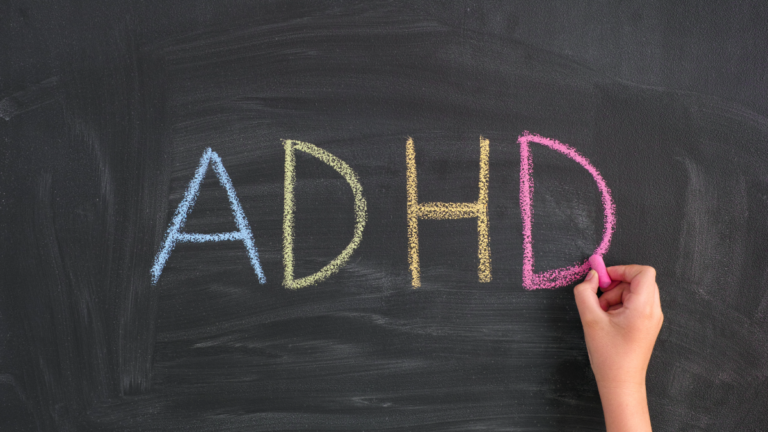October is ADHD Awareness Month, an important time to shine a spotlight on a condition that affects millions worldwide but often goes undiagnosed for years in adults. Attention-deficit/hyperactivity disorder (ADHD) is widely known for its prevalence in children, yet more adults are discovering that they, too, have struggled with ADHD for much of their lives without knowing it. In fact, many adults wait up to 10 years before receiving an accurate diagnosis. This delay can have far-reaching effects, from struggling with jobs and relationships to battling anxiety and depression.
One of the reasons for this increase in adult diagnoses is a growing awareness of how ADHD manifests in adulthood. Research shows that ADHD is not simply a childhood disorder that people outgrow; it persists into adulthood for many. A study by UCL in 2023 highlighted that ADHD diagnoses have surged in the past two decades, particularly among adults, with prescriptions for ADHD medications following a similar upward trend. This explosion in diagnoses is largely due to improved recognition of the condition, better diagnostic tools, and a growing openness about mental health.
Waiting for the Right Diagnosis
Despite growing awareness, many adults face significant challenges when trying to get an ADHD diagnosis. Waiting lists for assessments, especially through the NHS, can stretch for months or even years. For some, the lack of timely diagnosis means they develop coping strategies, often without understanding why they struggle with concentration, organisation, or impulsivity. These delays can make managing ADHD symptoms harder, impacting both personal and professional lives.
Part of the problem lies in how ADHD is diagnosed. Unlike other medical conditions, there is no blood test or scan that can definitively diagnose ADHD. Clinicians rely on a combination of behavioural observations, patient history, and symptom checklists. This complexity, combined with increasing demand, means that diagnosis can be a slow process.
Medication Shortages and Treatment Access
For those fortunate enough to receive a diagnosis, another hurdle often awaits: accessing medication. The past few years have seen shortages in ADHD medications, exacerbating the difficulties many patients already face. While reports suggest that these shortages are easing, some patients still struggle to fill their prescriptions regularly. The impact of these shortages can be significant, as medication plays a critical role in helping manage symptoms like impulsivity, inattention, and hyperactivity.
The Neurological Basis of ADHD
Research into the neurological underpinnings of ADHD continues to grow. Studies show that ADHD is linked to differences in brain connectivity, particularly between the frontal cortex (responsible for executive functions like decision-making and focus) and deeper brain structures involved in emotion and behaviour control. This insight helps explain why ADHD can affect so many aspects of life, from time management to emotional regulation.
Additionally, Swedish research highlights the physical health risks associated with ADHD, suggesting that adults with the disorder are more likely to experience other medical conditions. This further emphasizes the need for a comprehensive approach to managing ADHD, beyond just medication.
Table of Symptoms
| Symptom | Description |
|---|---|
| Inattention | Difficulty paying attention, easily distracted, forgetful, and disorganized. |
| Hyperactivity | Restlessness, fidgeting, excessive talking, and difficulty staying seated. |
| Impulsivity | Acting without thinking, interrupting others, and difficulty waiting for their turn. |
| Emotional Regulation | Challenges with managing emotions, leading to mood swings and irritability. |
| Academic Difficulties | Struggles with schoolwork, particularly tasks that require sustained focus and attention. |
| Social Difficulties | Challenges with building and maintaining friendships due to impulsivity and difficulty following social cues. |
Public Skepticism and Debate
Despite the increased awareness and rising diagnoses, public skepticism around ADHD remains. Many still view the condition as over-diagnosed or question the legitimacy of adult ADHD. There is also ongoing debate about whether the rise in diagnoses reflects better detection or whether diagnostic criteria have broadened too much, capturing individuals who may not have full-blown ADHD. This skepticism can hinder people from seeking help, fearing judgment or misunderstanding, which may only prolong the delay in receiving appropriate care.
The Economic Impact of ADHD
The consequences of delayed diagnosis and treatment are not just personal, they also have a significant economic cost. Adults with untreated ADHD often face higher rates of job instability, absenteeism, and lower productivity, which can have a ripple effect on the economy. Untreated ADHD has been linked to increased healthcare costs as well, as those with the disorder are more likely to suffer from mental health conditions like anxiety and depression.
The rising demand for ADHD assessments has already strained public health services like the NHS, creating long waiting lists that further delay care. Addressing these systemic issues is critical for ensuring that those with ADHD can access the treatment and support they need.
ADHD Awareness and Care
While awareness of ADHD has undoubtedly improved, there is still a long way to go in ensuring that adults with the disorder receive timely diagnoses and appropriate treatment. Delays in diagnosis can leave people struggling with untreated symptoms for years, affecting their quality of life. At the same time, public skepticism about ADHD’s legitimacy, especially in adults, continues to create barriers to seeking help.
As we all recognise ADHD Awareness Month, it is crucial to keep shining a light on this condition and pushing for better access to diagnosis and treatment. By addressing the long wait times and medication shortages, we can make a real difference in the lives of millions. Awareness is just the first step, now it’s time to turn that awareness into action.

